
A key component of the abortion debate in America is the definition of human life. Those who agree with the medical science community think human life begins at the beginning of the third trimester of pregnancy. Those that agree with the religious community think that human life begins at conception. Last week the Trump administration announced an abortion of what everyone agrees represents human life, an abortive act that will potentially kill millions of Americans.
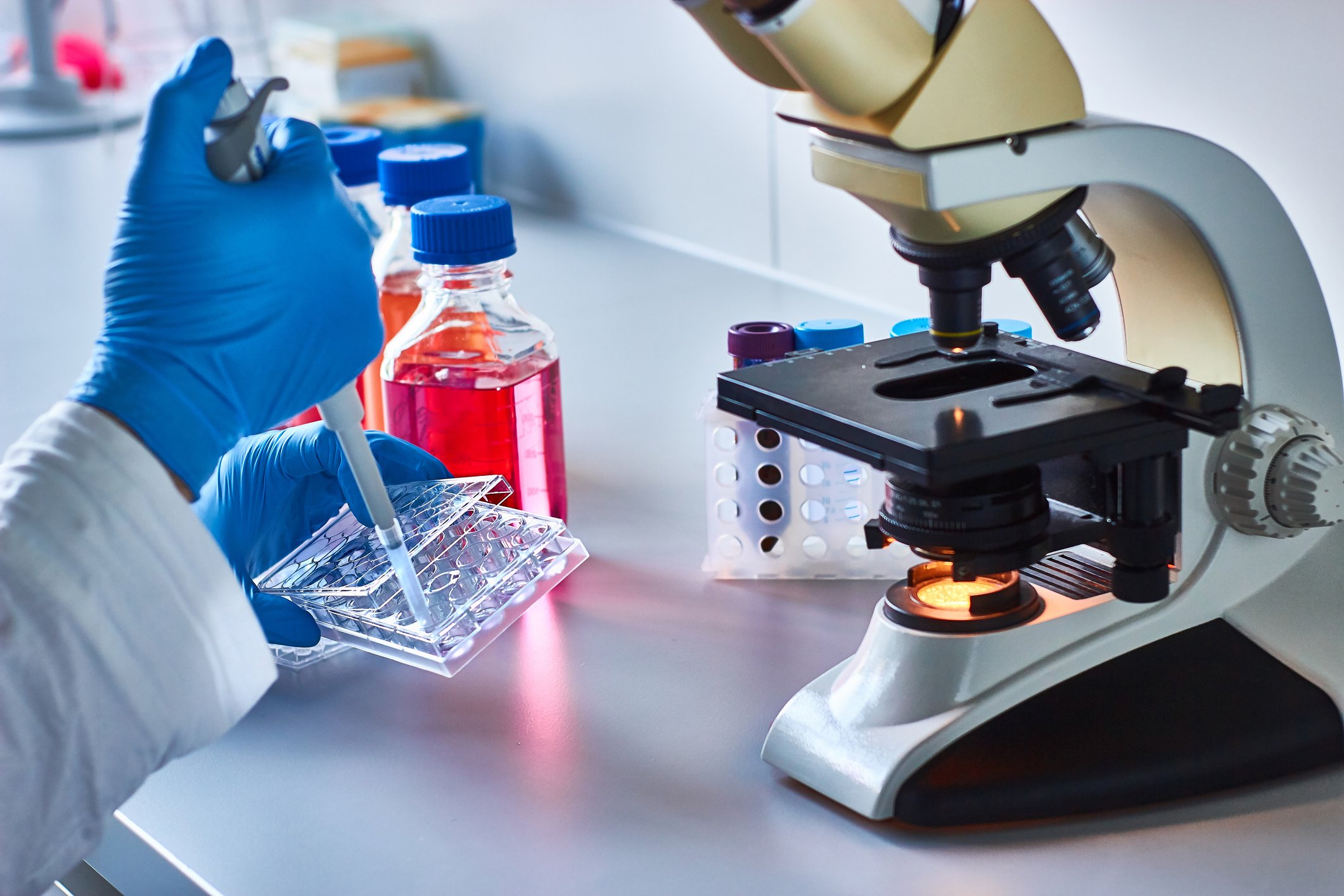
President Trump has ordered the National Institutes of Health to phase out funding for ALL fetal-tissue research, dooming millions to certain death
President Trump’s Department of Health and Human Services (HHS) performed its own abortion last Wednesday, it announced the abortion of fetal-tissue research within the National Institutes of Health. “Promoting the dignity of human life from conception to natural death is one of the very top priorities of President Trump’s administration,” the department said in a statement. The White House chimed in to make sure everyone knew who was ultimately responsible, “This was the president’s decision,” said spokesman Judd Deere, calling it “another important policy to protect the dignity of human life.”
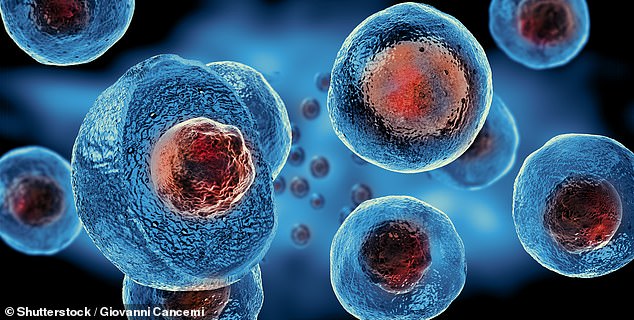
Fetal stem cells derived from fetal-tissue can proliferate to generate huge numbers of cells important for research and can act as a guide for scientists on how cell differentiation works
Besides the abortion of fetal-tissue research, HHS announced the immediate abortion of a 2013 $2 million-a-year contract with the University of California, San Francisco, for research involving fetal tissue from elective abortions. HHS said 200 research projects involving fetal tissue and conducted at universities with N.I.H. grants would be allowed to continue until their funding expires. The contract abortion is a follow-up to HHS’s December 2018 order to researchers at the Food and Drug Administration to stop purchasing fetal tissue for research. The indication that even HHS realized that this was an abortion of human life, was its simultaneous announcement to spend $20 million over 2 years to fund research seeking alternatives to fetal tissue research.

Georgetown University Professor Lawrence O. Gostin, who specializes in public health law, says the abortion of fetal-tissue research will “devastate” crucial medical research. “It will affect everything from cures for cancer and H.I.V. through to Parkinson’s and dementia,” Mr. Gostin said. “The ban on fetal tissue research is akin to a ban on hope for millions of Americans suffering from life-threatening and debilitating diseases. It will also severely impact the National Institutes of Health, universities and other researchers, who will lose key funding for their laboratories and their vital work.”
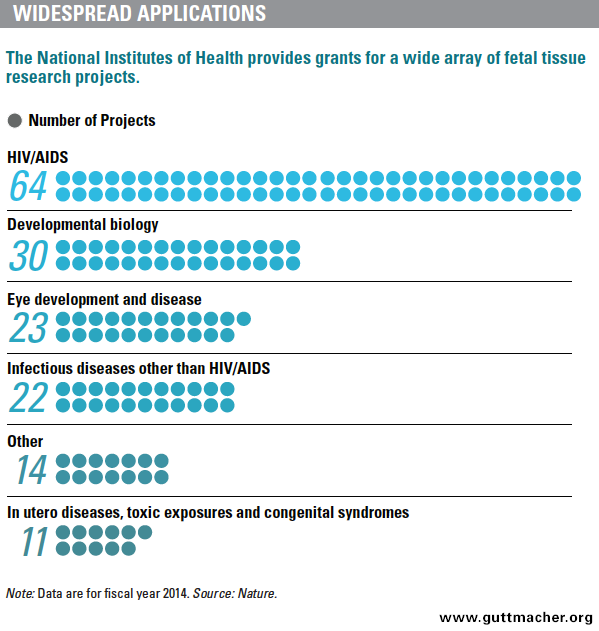
Fetal-tissue research unlike embryonic stem cell research, which uses cells from days-old embryos created through in vitro fertilization, uses tissue derived from an induced abortion of pregnancies at or after the ninth week. Fetal tissue obtained from a miscarriage is often not suitable for research purposes because of concerns about potential chromosomal abnormalities that led to the miscarriage. Fetal-tissue is not as developed as adult tissue and is able to adapt to new environments, according to the American Society for Cell Biology this is critical for the study of a wide variety of diseases and medical conditions.
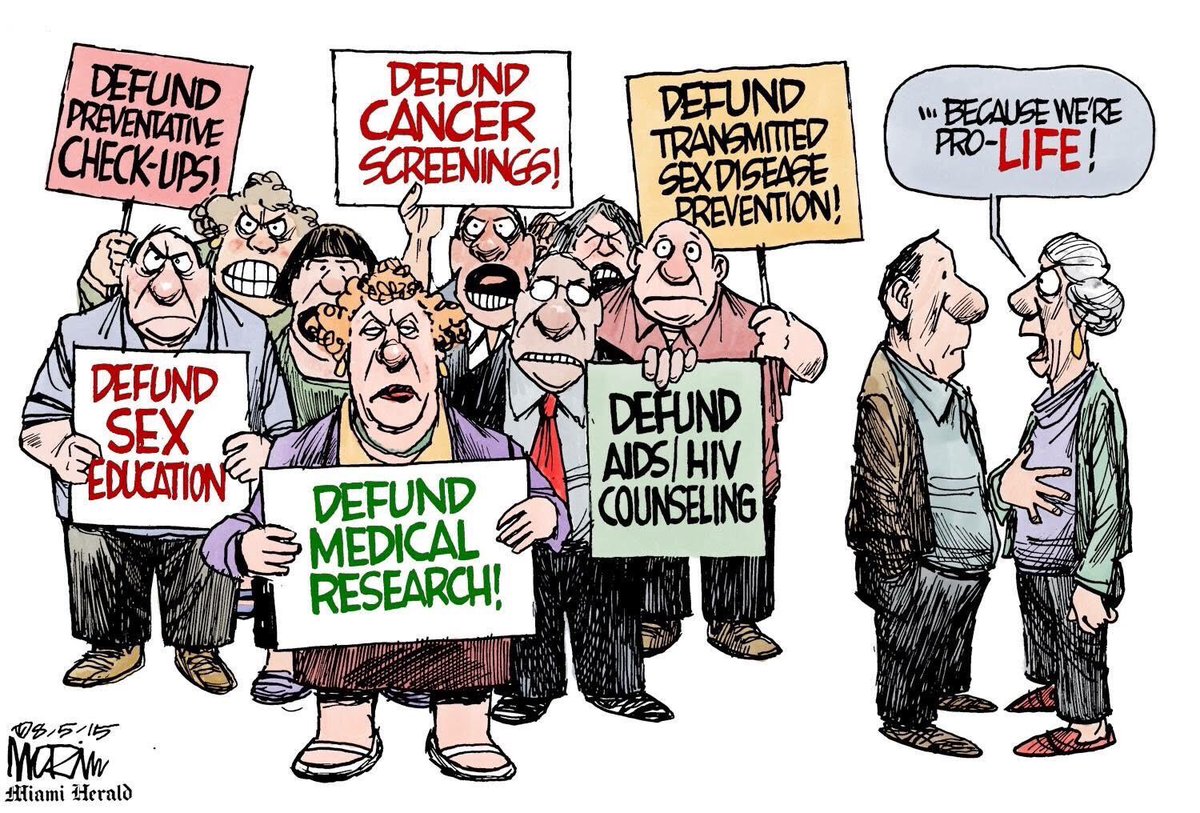
Pro-lifers claim they are protecting life by their efforts to defund research that offends their religious beliefs, but in reality they are promoting death
Long before the 1970’s Roe v Wade abortion decision fetal tissue was used to develop vaccines that have saved and improved the lives of billions of people worldwide. The 1954 Nobel Prize in Medicine was awarded for work using cell cultures originating from fetal tissue that led to the development of the polio vaccine. Vaccines for diseases such as measles, mumps, rubella, chickenpox, whooping cough, tetanus, hepatitis A and rabies were also created using fetal cell cultures, and researchers are now using fetal cells to develop vaccines against other diseases such as Ebola and the HIV virus.
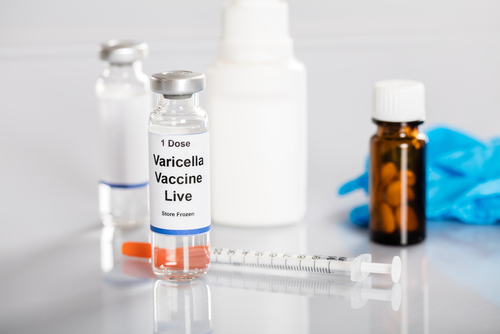
Fetal tissue has been used in many types of medical research, including the development of vaccines for polio, measles and other diseases, and therapies to treat Parkinson’s, diabetes, rheumatoid arthritis and to prevent the transmission of HIV
Researchers also use fetal tissue in transplantation research. Fetal tissue has unique properties that make it particularly suitable for cell and organ transplantation. Not only do fetal cells grow at a much faster rate than adult cells, but they also elicit less of an immune response, which lowers the risk of tissue rejection. Clinical trials transplanting fetal cells are currently underway for people with spinal cord injury, stroke and ALS (Lou Gehrig’s disease), and may soon begin for those with Alzheimer’s disease, Parkinson’s disease, and multiple sclerosis.
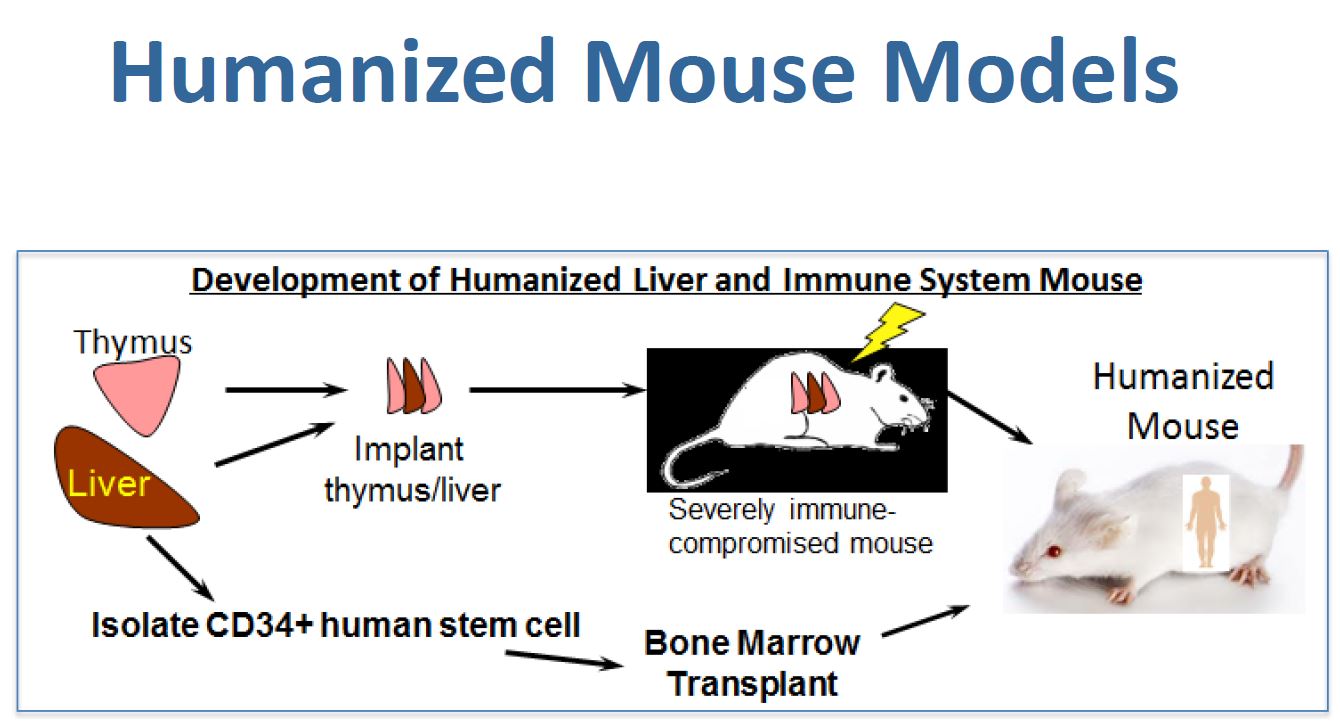
This graphic is used by the America’s Food and Drug Administration to illustrate their experiments to use fetal-tissue to produce humanized mice that are used to harvest human organs such as the liver
America’s academic medical centers are actively involved in fetal tissue research. Researchers at the University of North Carolina at Chapel Hill are using cell cultures derived from fetal tissue for their work on hepatitis B and C. Their research concentrates specifically on how the viruses evade the human immune system and cause chronic liver diseases. At the University of Wisconsin-Madison, fetal cell cultures are used to study heart disease, including sudden cardiac arrest. At Stanford University, fetal tissue has been used to study Huntington’s disease, juvenile diabetes, autism, and schizophrenia. And scientists at Colorado State University are conducting HIV research using fetal tissue.
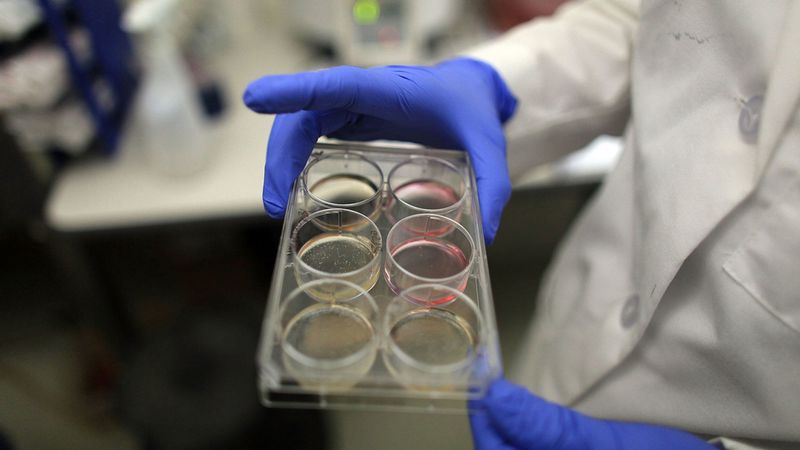
A tray of stem cells derived from fetal tissue
Dozens of scientific and medical groups concerned about the abortion of fetal-tissue research wrote a letter in December to HHS Secretary Alex M. Azar II informing him, “Claims that other cells can be used to replace fetal tissue in biomedical research are patently incorrect, while there have been some advances in recent years that have reduced the need for fetal tissue in certain areas of research, it remains critically important in many other areas.” For instance scientists at the University of California, San Francisco have been using fetal tissue to create so-called humanized mice by engrafting them with the tissue. This makes the mice respond like humans, making them the perfect specimen to develop and test what effect new drugs and vaccines will have on human beings.
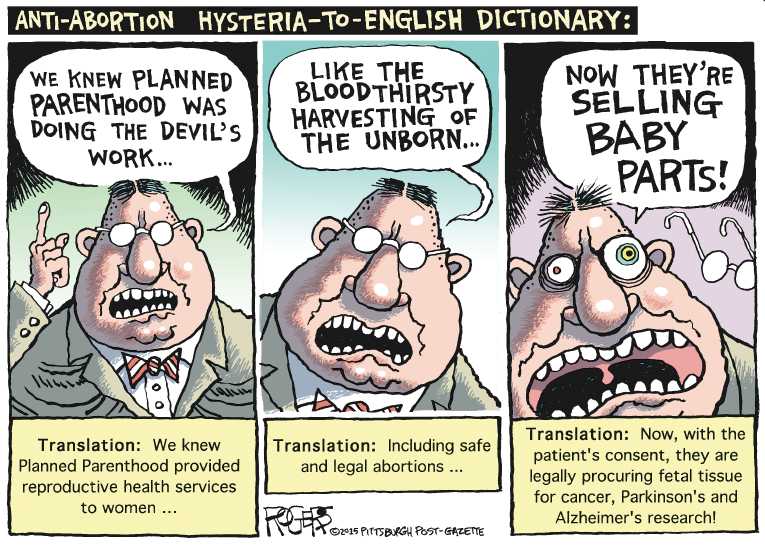
Doug Melton, Co-Director of the Harvard Stem Cell Institute and President of the International Society for Stem Cell Research, said “The regulatory and legal framework in the U.S. for overseeing fetal tissue research was carefully developed with input from the public, ethicists, policymakers and scientists and ensures rigorous oversight, including that the tissue is obtained legally and with donor consent.” “With these new arbitrary restrictions on research, the United States is ceding its role as the global leader in the development of cellular therapies and regenerative medicine.” Distinguished Professor in the University of California at San Diego’s Department of Cellular and Molecular Medicine Larry Goldstein says it best, “I think it’s ultimately a terrible, nonsensical policy, valuable research that is directed at helping to develop therapies for terrible diseases will be stopped. And tissue that would be used will be thrown out instead.”
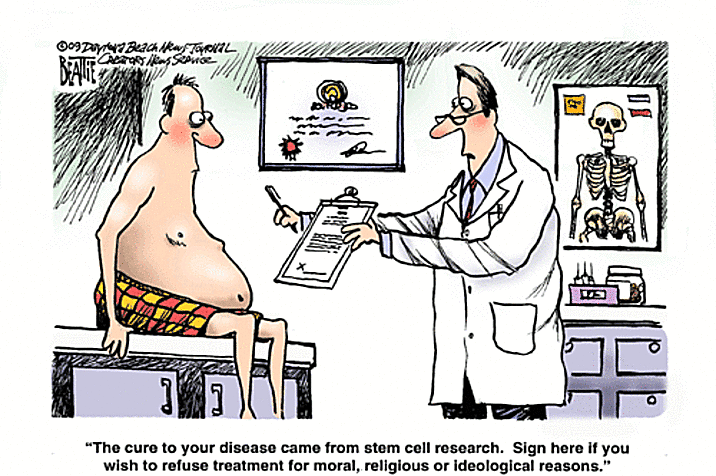
Abortion politics are by no means limited to President Trump and Republicans as we saw last week with Joe (Hyde Amendment) Biden and the Democrats, but anyone playing abortion politics with fetal-tissue research is truly cutting the nose off to spite the American face. There are disease treatments and cures which simply CANNOT be obtained without fetal-tissue research. Therefore the abortion of fetal-tissue research is the abortion of human life!
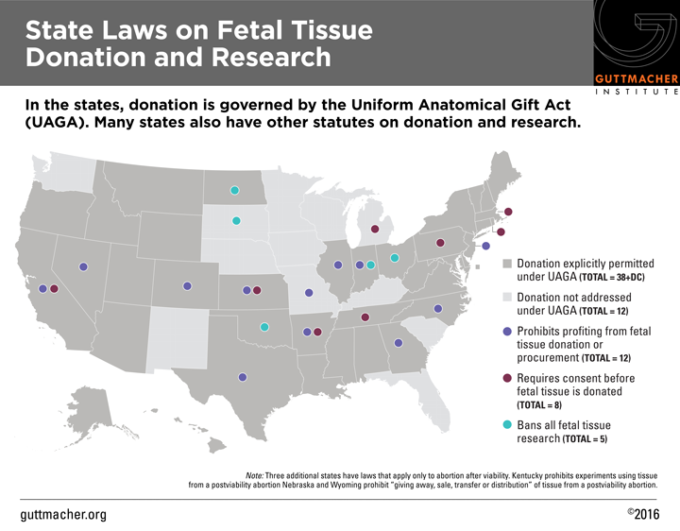
Bioethicist R. Alta Charo has written in the New England Journal of Medicine that enabling the use of fetal tissue to advance scientific research for the benefit of humankind, must be seen as a moral imperative. “Virtually every person in this country has benefited from research using fetal tissue, every child who’s been spared the risks and misery of chickenpox, rubella, or polio can thank the Nobel Prize recipients and other scientists who used such tissue in research yielding the vaccines that protect us. Any discussion of the ethics of fetal tissue research must begin with its unimpeachable claim to have saved the lives and health of millions of people.”
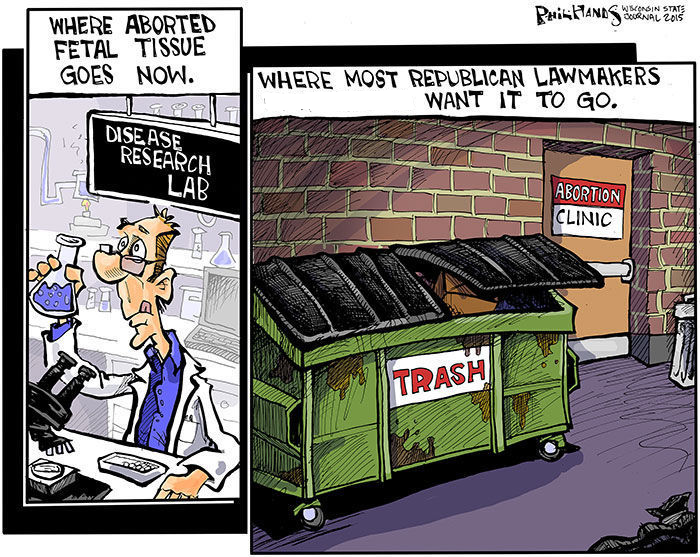
Unfortunately President Trump is allowing abortion politics instead of medical science to dictate what and how healthcare research is done
Religious doctrine and religious politics can INSPIRE but must not DICTATE medical science. In other words, abortion politics can’t be allowed to protect the unborn and un-living at the expense of a healthy disease-free life for the already born and living!




Leave a Reply